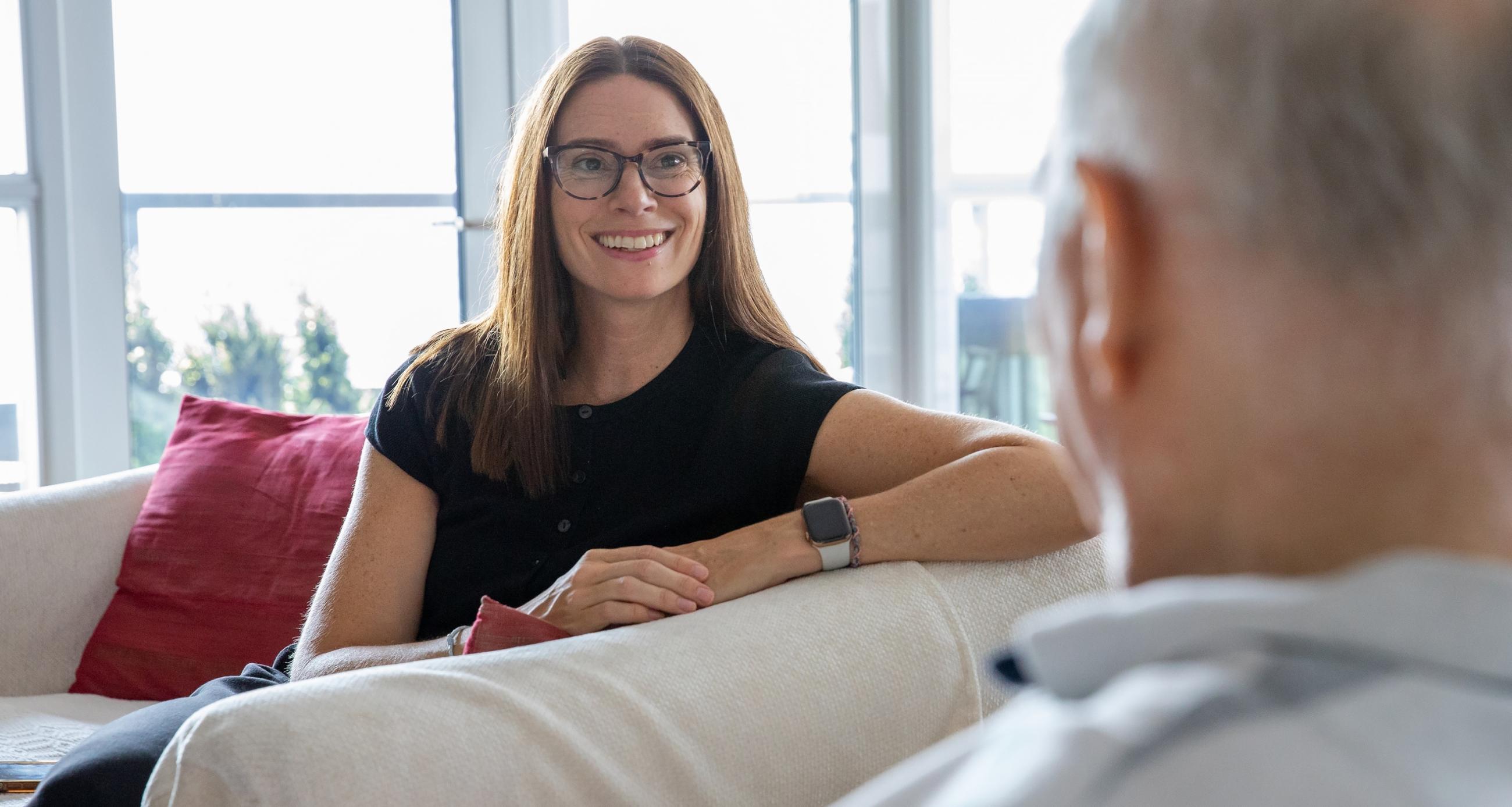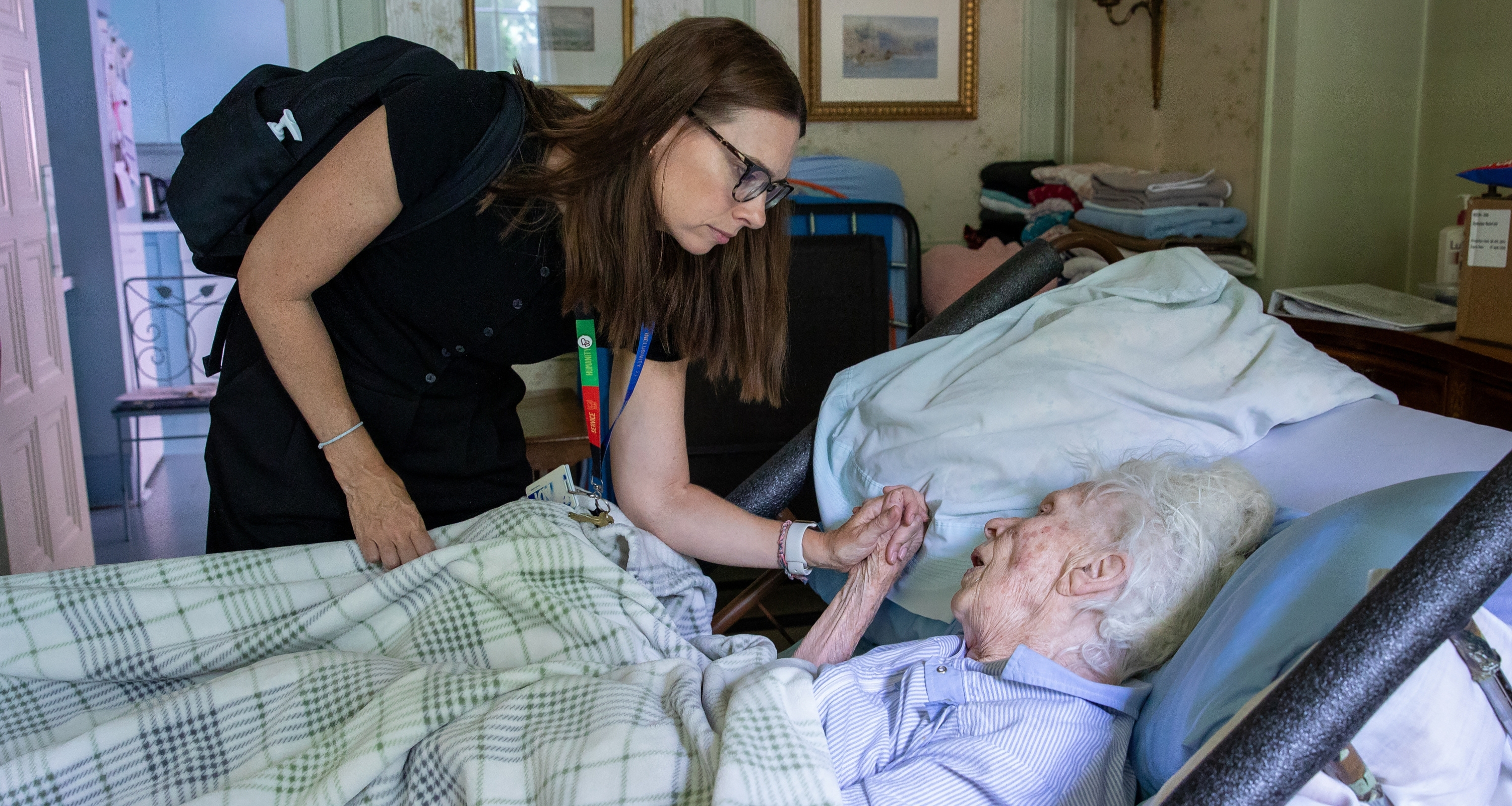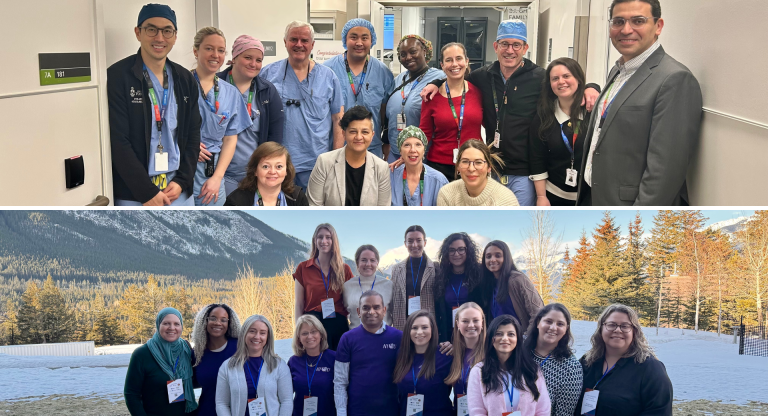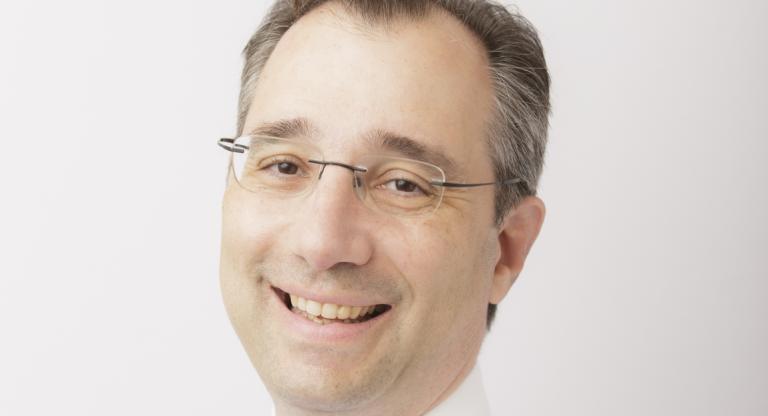There’s no place like home: Sinai Health’s palliative care at home program brings comfort directly to patients

Patients living with a life-limiting illness often wish to stay home as long as possible, underscoring the importance of accessible at-home palliative care. At Sinai Health’s Temmy Latner Centre for Palliative Care, Dr. Marnie Howe leads a program that brings comfort and support directly to patients and their families.
Canadians are living longer than ever, and many are living with life-limiting illness like cancer, heart failure, and progressive heart disease. As the need for palliative care continues to grow, Sinai Health is proud to play a leading role in advancing community-based palliative care services in collaboration with the services provided by Ontario Health at Home. Our goal is to ensure patients and caregivers receive timely, equitable, and comprehensive care.
Leading the way in palliative care at home
Palliative care, often misunderstood as solely end-of-life care, focuses on comfort, relief and quality of life at any stage of a serious illness. At Sinai Health, our palliative care team supports patients, families and caregivers through four programs – a palliative care unit at Hennick Bridgepoint Hospital, clinic-based and in-hospital services at Mount Sinai Hospital, and a palliative care at home program through The Temmy Latner Centre for Palliative Care.
Sinai Health has been at the forefront of bringing palliative care to patient’s homes in Ontario, having pioneered the province’s first palliative care at home program. The Temmy Latner Centre for Palliative Care offers an integrated approach to care, which helps patients access in-patient services and bridge the gap between hospital specialists and home care.
Dr. Marnie Howe, Home Care Lead Physician at The Temmy Latner Centre for Palliative Care, shares how this type of care improves quality of life for patients and enables her team to provide more tailored and responsive care.

For those unfamiliar with at-home palliative care, how would you describe this type of care and what makes Temmy Latner’s home program unique in the way it supports patients and families?
Our home-based palliative care team focuses on expert symptom management and improving quality of life throughout the illness, not just at the end of life. Sinai Health has been a leader in this area for many years, continuing to evolve and build on our original vision.
Our role in the health care system is deeply important – we support primary care providers and specialists who may not be able to reach into the home the way our team can, and work with community partners to deliver a more seamless experience for our patients. This work helps patients avoid unnecessary emergency department visits, if that isn’t congruent with their goals.
Seeing patients in their homes offers valuable insight into their daily lives. Patients tell us there’s comfort in the familiarity of home – the presence of pets, meals, and their own bed – all which offer a sense of control. While illness takes some of that control away, having 24/7 access to a physician is invaluable to them. A timely call can address issues, reduce suffering and avoid unnecessary trips to the emergency department.
We’re caring for patients earlier in their illness and for a broader range of conditions beyond cancer. Even as our caseload grows, our team continues to respond to urgent referrals within one to two days. I am proud of the critical role our team plays in helping ensure patients and caregivers feel supported.
How does this program contribute to a better health care experience for patients?
Sinai Health’s physician team is fully integrated with home care – we also participate in daily huddles with the patient’s home care coordinator, nurse, and allied health team members, and often do joint visits with these teams. Caregivers tell us that this approach gives them greater confidence in the care they receive.
Many of our physicians on our team are trained in point-of-care ultrasound (POCUS), which has enabled us to provide ultrasound-guided paracentesis at home. The impact has been significant, with fairly immediate symptom relief for those who would have otherwise required a transfer to the clinic or emergency department. We continue to develop skills and processes in order to bring more procedures, with and without POCUS, to meet care needs in the home.
Meeting the growing need
As demand for palliative care continues to grow, home-based programs will play a key role in shaping the future of care. To meet this need, programs must remain flexible, sustainable and responsive.
“Palliative care has evolved over the last two decades,” said Dr. Howe. “Our team has been able to innovate, and I have had the privilege of seeing how this area of care transforms both the patient and caregivers’ experience.”












